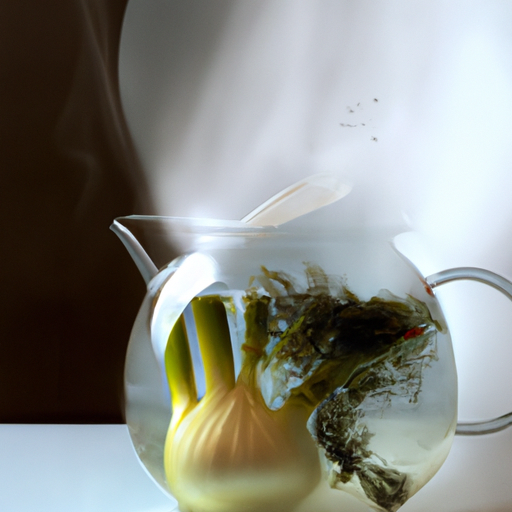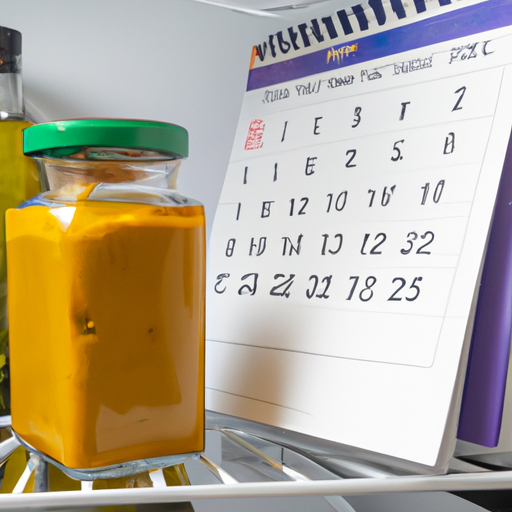Have you heard that fennel tea has been appreciated for centuries because of its many health advantages? Research has demonstrated that this herbal tea can aid in digestion, decrease inflammation, and even assist in weight loss. If you’re interested in learning how to prepare fennel tea and include it in your daily regimen, you’re in the right spot.
In this article, I will guide you through the step-by-step process of making fennel tea from scratch. From gathering the necessary ingredients to exploring different variations and additions, I’ll provide you with all the information you need to prepare a delicious and refreshing cup of fennel tea.
So, let’s get started!
First, we’ll delve into the health benefits of fennel tea, so you can truly understand why this herbal beverage is worth adding to your wellness routine.
Then, we’ll move on to the practical aspects, such as preparing the fennel seeds, boiling the water, and infusing the tea.
Finally, we’ll discuss different ways to strain and serve the tea, as well as how to incorporate fennel tea into your daily routine.
Get ready to discover the wonders of fennel tea and enhance your well-being one cup at a time.
Key Takeaways
- Fennel tea has numerous health benefits and has been enjoyed for centuries.
- Fennel tea can help with digestion, reduce inflammation, and promote weight loss.
- Precautions should be taken when consuming fennel tea, especially for pregnant women and individuals with certain medical conditions.
- To make fennel tea, harvest fennel seeds, dry and roast them, grind the roasted seeds, boil water and steep the fennel seeds, then strain and serve the tea hot or chilled.
Understanding the Health Benefits of Fennel Tea
If you’re looking to improve your overall health, fennel tea is a must-try beverage that can provide numerous benefits. Understanding the history and cultural significance of fennel tea is essential to fully appreciate its value.
Fennel tea has been used for centuries in various cultures for its medicinal properties and as a natural remedy for digestive issues. It’s known for its ability to soothe indigestion, bloating, and gas. Additionally, fennel tea is rich in antioxidants and can help boost the immune system.
However, it’s important to note that fennel tea may not be suitable for everyone. Exploring the potential side effects and precautions of consuming fennel tea is crucial, especially for pregnant women and individuals with certain medical conditions.
Transitioning into the subsequent section about gathering the necessary ingredients, it’s important to understand the potential benefits and risks of fennel tea.
Gathering the Necessary Ingredients
Once you have all the ingredients ready, it’s as simple as steeping the fennel seeds in hot water to create a soothing and aromatic beverage.
To gather the necessary ingredients, start by harvesting fennel seeds from mature fennel plants. Look for fennel plants with yellow flowers that’ve started to dry out. Cut the stalks just below the flower heads and place them in a paper bag. Hang the bag upside down in a warm, dry area for about a week to allow the fennel seeds to dry completely.
Once the seeds are dry, gently rub the flower heads between your fingers to release the seeds. The dried fennel seeds are now ready to be used in making fennel tea.
Moving on to the next section about preparing the fennel seeds, let’s get started on the process.
Preparing the Fennel Seeds
To begin preparing the fennel seeds, simply dry them completely after harvesting from mature fennel plants with yellow flowers. Drying the seeds is crucial as it removes any moisture and enhances their flavor.
Once the seeds are dry, you can proceed to the next step: roasting. Roasting the fennel seeds helps to release their essential oils and intensify their aroma. To do this, heat a skillet over medium heat and add the seeds. Stir them constantly for about 2-3 minutes, or until they turn slightly golden and emit a fragrant smell.
After roasting, allow the seeds to cool completely before grinding them. Use a mortar and pestle or a spice grinder to finely grind the roasted fennel seeds. This grinding process breaks down the seeds, making it easier for their flavors to infuse into the tea.
Once the seeds are ground, you can move on to boiling the water and infusing the tea, imparting a delightful fennel flavor.
Boiling the Water and Infusing the Tea
Start by bringing the water to a boil, allowing the flavors of the fennel seeds to infuse and creating a soothing and aromatic beverage that is enjoyed by many people around the world. Did you know that fennel tea has been used for centuries to aid digestion and promote relaxation?
When boiling the water, it’s important to use fresh, filtered water to ensure the best taste. You can use a kettle or a saucepan to heat the water. Once the water reaches a rolling boil, add the fennel seeds to the pot. Use approximately 1 teaspoon of fennel seeds for every 8 ounces of water.
Cover the pot and let the fennel seeds steep in the boiling water for about 5-10 minutes. This allows the natural oils and flavors to be released into the tea. After steeping, strain the tea using a fine mesh strainer or a tea infuser to remove the fennel seeds.
Now, you have a delicious cup of fennel tea ready to be enjoyed! It’s best served hot, but you can also let it cool and serve it over ice for a refreshing twist. In the next section, we’ll discuss how to strain and serve the fennel tea, enhancing your tea-drinking experience.
Straining and Serving the Fennel Tea
Now that your fennel tea’s steeped to perfection, it’s time to strain out the seeds and savor the aromatic flavors in every sip. Straining the tea is a crucial step to remove any leftover fennel seeds and ensure a smooth and enjoyable drinking experience.
Here are some serving techniques to enhance your fennel tea experience:
- Serve the tea hot or chilled, depending on your preference.
- Add a touch of honey or lemon to enhance the flavor.
- Garnish with fresh fennel fronds for an elegant presentation.
These serving techniques will elevate the taste and presentation of your fennel tea. Experiment with different variations and additions to find your perfect cup.
In the next section, we’ll explore different ways to customize your fennel tea and discover unique flavors. So, let’s dive into the world of fennel tea recipes and explore the endless possibilities!
Exploring Different Variations and Additions
As we delve into the realm of fennel tea variations, a world of tantalizing flavors and unexpected combinations awaits. One way to add a twist to your fennel tea is by experimenting with flavored fennel tea. You can infuse your tea with different herbs or spices to enhance the taste and aroma.
For a refreshing twist, try adding a few sprigs of mint or a slice of lemon to your tea. If you prefer a sweeter flavor, you can add a touch of honey or a sprinkle of cinnamon. There are also various fennel tea recipes available that incorporate different ingredients like ginger, chamomile, or cardamom for a unique flavor profile.
These variations allow you to customize your fennel tea to suit your preferences and taste buds. Now, let’s explore how you can incorporate fennel tea into your daily routine without missing a beat.
Incorporating Fennel Tea into Your Daily Routine
Incorporating fennel tea into your daily routine is a simple and delightful way to elevate your wellness journey. Not only does fennel tea have a delicious flavor, but it also offers numerous benefits for digestion.
Fennel tea is known for its ability to soothe the digestive system and alleviate bloating. The natural compounds found in fennel tea, such as anethole and fenchone, help relax the muscles in the gastrointestinal tract, promoting better digestion and reducing the discomfort caused by bloating.
By making fennel tea a part of your daily routine, you can experience these benefits on a regular basis. Start your day with a warm cup of fennel tea to kickstart your digestion and prevent bloating throughout the day. You can also enjoy a cup after meals to aid in digestion and relieve any discomfort.
It’s a simple and natural remedy that can make a significant difference in your overall wellness. So why not give fennel tea a try and see the positive impact it can have on your digestive health?
Frequently Asked Questions
How long does fennel tea stay fresh and can it be stored for later use?
Fennel tea can stay fresh for up to 2 years if stored properly. To maintain its longevity, store it in an airtight container away from light, heat, and moisture. This will help preserve its flavor and beneficial properties.
Can fennel tea help with digestive issues such as bloating and indigestion?
Fennel tea can indeed help with digestive issues like bloating and indigestion. It has been traditionally used for centuries for its soothing properties. Incorporating fennel tea benefits into your diet can promote better digestion and alleviate discomfort.
Is fennel tea safe to consume during pregnancy?
Yes, fennel tea is generally safe to consume during pregnancy. However, it’s important to consult with a healthcare provider for individualized advice. Fennel tea may also help with breastfeeding and provide relief for menstrual cramps.
Can fennel tea be consumed by children?
Yes, fennel tea can be consumed by children. It has numerous benefits, including aiding digestion and soothing colic. According to a study, fennel tea reduced colic symptoms in infants by 65%.
Are there any potential side effects or interactions to consider when drinking fennel tea?
There are potential drug interactions to consider when drinking fennel tea, especially if you are breastfeeding. It is important to consult with a healthcare professional before consuming fennel tea or any herbal remedies.
Conclusion
In conclusion, making fennel tea is a simple and beneficial addition to your daily routine. By understanding its health benefits, gathering the necessary ingredients, and following the steps to prepare and serve the tea, you can easily incorporate this soothing beverage into your life.
Whether you prefer to enjoy it plain or experiment with different variations and additions, fennel tea is a versatile and flavorful way to promote digestion, reduce inflammation, and improve overall well-being. So why not give it a try and let the benefits of fennel tea work their magic?
After all, a little fennel tea a day keeps the doctor away!










